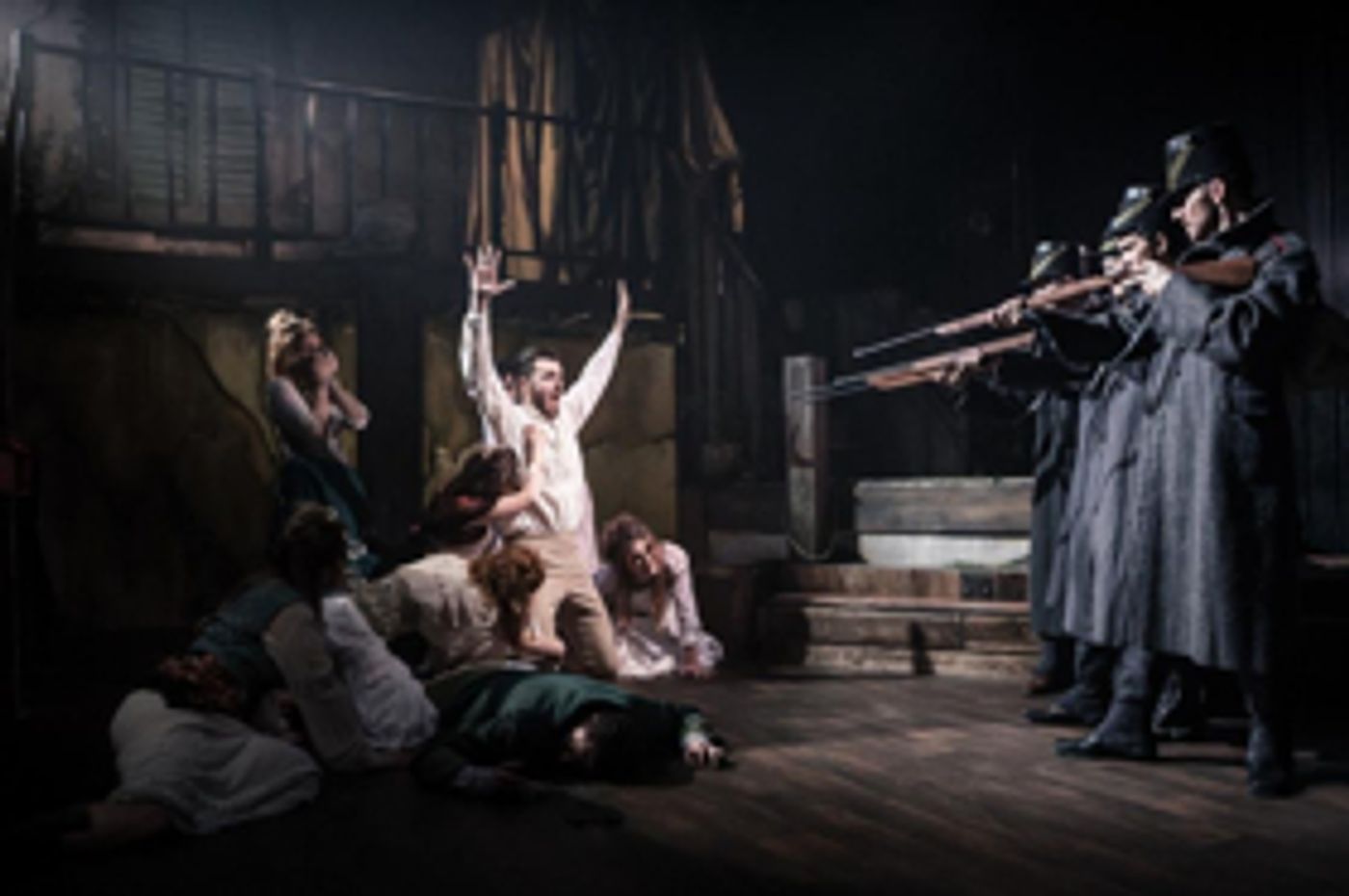Review: CARMEN 1808, Union Theatre

![]() Those last few years of the 18th century and first few of the 19th have proved to be fertile ground for musicals (there's a couple of megablockbusters on in the West End you may have heard of), so why not hitch a ride on the Georgian vibe and set Carmen in those turbulent times? And, while we're taking liberties with tales of Liberty, why not swap opera's stiffish formalities for musical theatre's song and dance and the orange of Seville for the yellow of Catalonia?
Those last few years of the 18th century and first few of the 19th have proved to be fertile ground for musicals (there's a couple of megablockbusters on in the West End you may have heard of), so why not hitch a ride on the Georgian vibe and set Carmen in those turbulent times? And, while we're taking liberties with tales of Liberty, why not swap opera's stiffish formalities for musical theatre's song and dance and the orange of Seville for the yellow of Catalonia?
Phil Willmott's book and lyrics do all that (and more) in a production that's fantastic if you haven't seen Carmen and still pretty good even if you have. We lose a bit of vocal grandstanding, but we gain plenty with some fine triple threat work from a hardworking cast. And if there's a tad more exposition than is needed, the framing device of having painter Francisco Goya (Alexander Barria - very good indeed) observe and comment on matters is a real coup, that artist's genius for capturing kings and courtesans and depicting war with a photojournalist's sensibilities, proving perfectly suited to his role as our eyes and ears.
We get (and boy oh boy, do we get!) the greatest hits that everyone seems to be born knowing, with new words, but Bizet's same rousing tunes. Inevitably, in a venue of this size, musical director, Teddy Clements, gets a helping hand from some piped-in strings, but who cares when the cast are dancing and belting for all their worth! Adam Haigh's choreography covers the ticket price on its own.
The beautifully staged denouement, with all its power intact, stays true to Goya's horror at man's inhumanity to man, but we get a big send-off too, acknowledging that Spain stayed Spanish (for all the contradictions that entailed and the bloodshed that ensued) and that L'état may well have been Moi for Napoleon as much as it was for those he overthrew, but that his state soon stopped at the Pyrenees.
Rachel Lea-Gray gives us a scarlet and black clad temptress who can sing and dance and seduce with all the cynicism Carmen can muster - at least until her heart is won for real. Opposite her, Maximilian Marston smoulders in uniform as Verlade, the officer she recruits to the cause and there's a decent turn from Thomas Mitchells as his squaddie rival in love.
The principals get strong support from the corsetted cigarette factory girls, for once about 50 / 50 on the skanky / sexy scale, and from the soldier boys who get to ham it up mercilessly as French soldiers with accents so ripe that the director of 'Allo 'Allo might have counselled reining them in un peu.
It's super entertainment - who wouldn't be won over by such energy? Yet the feeling persists that, at 90 minutes all-through, some of the original work's epic qualities are sacrificed for an overly hurried pace and that some of the voices aren't quite up to dealing with music that may have been repurposed, but is still unmistakably operatic.
But this is a Carmen that shows as much fidelity to its inspiration as its heroine does to her lovers and, with "straight" versions of Bizet's masterpiece staged seemingly almost continually and available at the click of a computer mouse, why not?
Carmen 1808 continues at the Union Theatre until 10 March.
Photo Scott Rylander.
Reader Reviews
Videos

